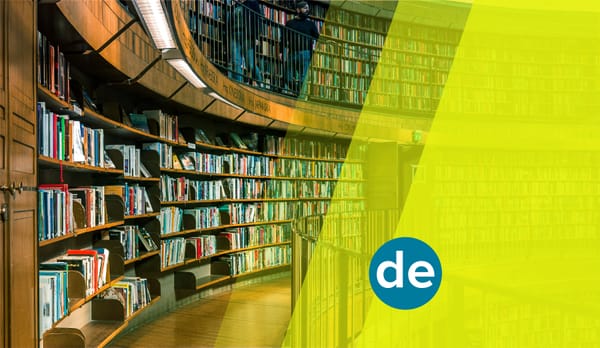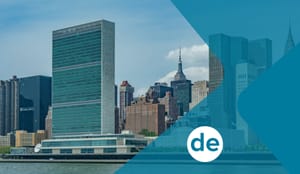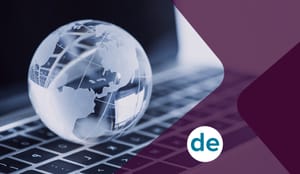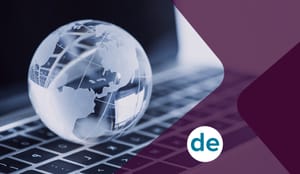New UN Office for Digital and Emerging Technologies
On 1 January 2025, the UN announced that the previous Office of the UN Tech Envoy (OSET) was going to be transformed into a "UN Office for Digital and Emerging Technologies" (ODET). ODET is responsible for the "follow-up and implementation of the Global Digital Compact, including its decisions on AI governance". UN Tech Envoy Amandeep Gil Singh had applied for 30 new posts, 18 were approved. This is a significant increase in staffing in New York compared to Geneva. On 17 January 2025, ODET began informal consultations for AI Panel and AI Dialogue. The extent to which ODET will also be given responsibilities for WSIS+20 and the future of the IGF is unclear.
Coordinators appointed for WSIS+20 process
On 20 January 2025, the President of the UN General Assembly appointed the UN Ambassadors of Kenya and Lithuania, Erastus Lokaale and Rytis Paulauskas, as coordinators for the WSIS+20 process. Kenya hosted the IGF in 2001, Lithuania in 2010. Lithuania also hosted EURODIG in 2024. In the letter, both ambassadors are called upon "to ensure a meaningful engagement of all relevant stakeholders in the consultations." In a statement, civil society called for "to strengthen rather than duplicate existing mechanisms and processes... and recognize that the IGF has evolved into the world's foremost and most inclusive forum for dialogue on not only the internet, but also broader digital governance, and establish it as a permanent forum and ensure that it has the resources needed to strengthen its capacity and reach."
Reactions to the new EU Competence Compass
On 29 January 2025, the EU adopted its "Competence Compass", which aims to implement the Draghi Report (October 2024) and increase Europe's competitiveness. Commission President von der Leyen criticised that "Europe's global share of patent applications is on par with the United States and China, but only one-third of these are commercially exploited. And only a small share of EU businesses is seizing the opportunity of digital change. If you look at our companies, only 13.5% are using AI. This must change". It is debatable whether regulation will help. In a study entitled "Better Law-Making and Evaluation for the EU Digital Rulebook" published on 21 January 2025, the Center on Regulation in Europe called on the European Commission to simplify digital legislation and calculate its economic costs. On 31 January 2025, the industry association Bitkom accused the EU AI law of creating more legal uncertainty and blocking innovation.
Digital Services Act and content moderation
On 23 January 2025, the European Parliament will discuss the Digital Services Act (DSA) and Marc Zuckerberg's intention to suspend "content moderation" in the US. The announcement by EU Vice-President Henna Virkkunen that she would not give in to pressure from US companies was met with support. "What good is it for us to have laws if we don't have the courage to apply them?" asked French MEP Glucksmann. And MEP van Sparrentak argued: "A true free internet is one where not a small bunch of tech oligarchs, but our democratic institutions make the rules. In the current geopolitical context we cannot afford to be naive. The EU needs to stand strong and stand up for democracy online and offline. The push for deregulation in tech led by Trump and his friends will no longer bring us freedom and democracy, but further plummet us into a tech oligarchy". Virkkunen announced proceedings against X, Facebook and TikTok, a personnel upgrade and a report for November 2025
Digitalisation in the Global South
AI and cyber security were topics at the Davos World Economic Forum (WEF) from 20 - 24 January 2024. In the "WEF Global Risk Report 2025", "Digital Polarization" is in second place. On 21 January, the WEF and the Global Cybersecurity Forum (GCF) agreed to establish a new "Centre for Cyber Economics" (CCE) to promote digitalisation in the Global South in particular. The GCF will be led by Saudi Arabia.
Trump and AI
On the first day after his inauguration, US President Trump rescinded the AI Executive Order (EO) of his predecessor Joe Biden and replaced it with an EO entitled "Removing Barriers to American Leadership in AI". The new EO calls for "AI systems that are free from ideological bias or engineered social agendas". The aim of the EO is "to enhance America's global AI dominance". The EO was underpinned by the announcement of the "Stargate" project. By 2030, USD 500 billion is to be invested in AI by Oracle, Open AI and Softbank. On 20 January 2025, young billionaire Alexander Wang, CEO of Scale AI, proposed a 5-point plan in a letter to Trump to ensure that the US wins the "AI war" with China.
IGF 2025
Proposals for the "Call for Proposals" for the IGF 2025 in Oslo in June could be submitted until 12 January 2025. The local IGF website went live on 15 January 2025. On 18 January 2025, the members of the Multistakeholder Advisory Group (MAG) for 2025 were appointed, which held its first meeting on 30 January 2025. Germany is represented by Sook-Jung Dofel (GIZ), Wolfgang Kleinwächter (MSL) and Philipp Schulte (BMDV).















